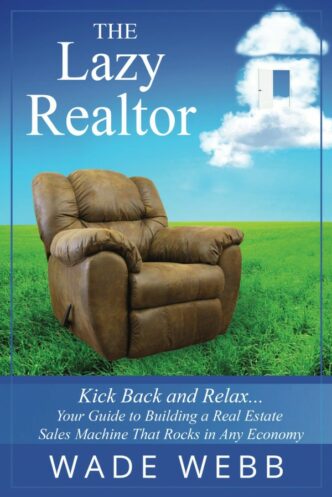The Seven Deadly Real Estate Sins
- Social Media Hacks For Agents - April 24, 2024
- Getting Listings In A Low Inventory Market 2024 - April 17, 2024
- Time For A Q2 Shift In Your Real Estate Business? - April 11, 2024

Increasingly, though, I am hearing from brokers and agents an undercurrent of concern about what to expect next. How will emerging technologies change the business? What will they need to do to stay relevant and well-compensated for their efforts? Will their role in the transaction be diminished, or even eliminated?
Clearly, there is no crystal ball to consult when considering these perplexing questions. But it’s safe to assume new technologies and breakthrough business practices will dramatically impact how consumers buy and sell homes in the future.
Those empowered real estate professionals and companies who anticipate and embrace these changes will most likely endure. Those who ignore and resist, will not.
One thing is certain. In an age of disruption, decisive industry-wide leadership will be paramount. Resistance to change and protectionist thinking will be the recipe for disaster.
The Seven Deadly Real Estate Sins
1. Denial
Assuming a new, disruptive business model will be unsuccessful simply because:
- A similar concept failed in the past
- When the current market turns, either for better or worse, everything will go back to “normal”
2. Dismissal
Attributing the success of a new business model to geographic location and/or extraordinary market dynamics, rather than sound business principles and practices; for example, “It may work just fine in San Francisco, but it will never work in my market!”
3. Disregard
Overlooking the customer experience, while promoting the complexity and emotionality of the current process to help justify professional assistance during the transaction.
4. Disdain
Blaming the millennial generation for the current disruptive business environment and hope when they finally mature business practices will revert back to the “good old days.”
5. Delusion
Refusing to acknowledge breakthrough ideas or new ways of thinking simply because they threaten self-imposed beliefs of how and why things should be done.
6. Desperation
Surrounding yourself at every level with people who look, act and think just like you do in an attempt to preserve and perpetuate the status quo.
7. Dysfunction
Expecting team members to actively embrace company goals and objectives without first understanding why the company is in business, what the organization hopes to accomplish and how success will benefit all stakeholders and the communities they serve.
When confronted with disruption and uncertainty, it is not uncommon to take refuge in the past and disparage anything new or uncomfortable. Turtling-up under pressure and hoping for the best is not a good business strategy.
Facing the future alone, without proper support and guidance, is risky when the world is changing so fast and the resources needed to succeed are growing exponentially.
The “seven deadly real estate sins” are not exclusive to the our industry. They are universal in nature. My advice is to make certain none of them influence your actions. Once committed, absolution can be very costly.
Strength and courage,
Wade
https://plus.google.com/u/1/113259707478722993209/posts/ZuYZvMEiuM9


FIRST 2 CHAPTERS FREE
My book, The Lazy Realtor, is available in Paperback or Kindle format, on Amazon. You can preview it here and I’ll even include these bonus items:

Phone: (250) 212-8220 | Wade@agentsboost.com
